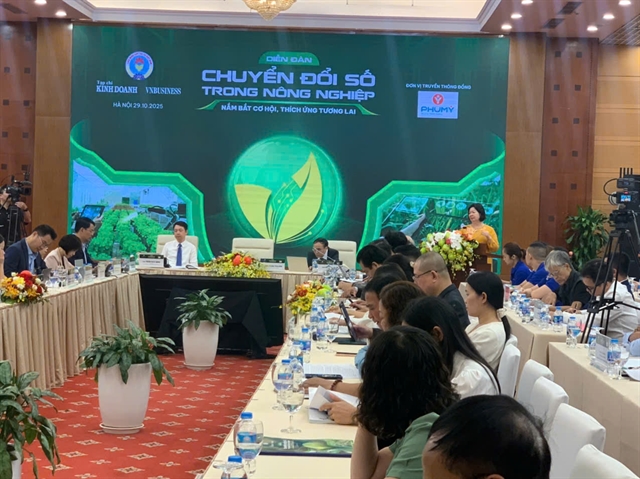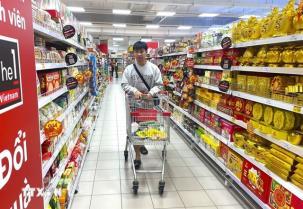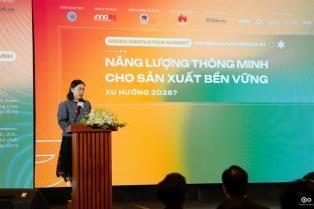
HÀ NỘI — Digital transformation is no longer an option but a vital requirement for the agricultural sector, especially for cooperatives, to boost productivity and exports.
This statement was widely supported by participants at a forum on digital transformation in agriculture held on October 29 in Hà Nội.
Forum attendees warned that if changes remain slow, Vietnamese farmers and cooperatives risk being excluded from the global value chain as the world accelerates digitalisation and tightens green standards.
In her opening remarks, Chairwoman of the Vietnam Cooperative Alliance (VCA) Cao Xuân Thu Vân said that the digital transformation is the “shortest way” for agriculture to increase productivity, reduce costs and create competitive advantages in international markets.
The agricultural sector currently contributes 12–14 per cent of GDP and aims to achieve at least US$65 billion in agricultural, forestry and fishery exports by the end of the year.
However, among the more than 22,500 agricultural cooperatives currently operating, the actual rate of digital transformation remains very low, as many only apply technology sporadically and lack a long-term strategy.
Vân warned that if cooperatives do not rapidly change their mindset and operational models, they will be left behind and lose opportunities to access markets.
Under pressure from global competition, the digital transformation has become a lifeline for agricultural cooperatives. Digital data systems and Internet of Things (IoT) technologies enable real-time product monitoring, blockchain ensures transparency of origin, and e-commerce platforms allow direct market access without intermediaries.
Yet, the digital transformation rate in agricultural cooperatives is only about 32 per cent, hindered by limited financial resources, weak infrastructure, insufficient technological expertise and a persistent fear of change.
According to Vân, these challenges can be grouped into five main categories: limited finance, weak technological infrastructure, a shortage of skilled workers, a lack of development strategies and difficulties accessing support policies.
She said that the key lies not only in technology investment, but also in changing ways of thinking and working to prioritise appropriate technological applications in production, management and consumption, so that digital transformation becomes genuine innovation, not a mere movement.
To accelerate the digital transformation, the VCA has outlined several core solution groups for the 2026–2030 period, including raising awareness and operational capacity in digital technology, organising training programmes for farmers, attracting young technological talent to work in cooperatives and sharing successful models for replication.
At the same time, it will be essential to create favourable conditions for cooperatives to access long-term capital by simplifying loan procedures and prioritising credit for activities like data digitisation and the adoption of production and business management software.
Building a digital cooperative ecosystem also plays a crucial role in developing regional digital platforms and strengthening connections between cooperatives, enterprises and scientific organisations, while promoting e-commerce and digital payments to expand market access.
Vân said that digital transformation must go hand in hand with the green transformation so that Vietnamese agricultural products meet 'green passport' standards to enter global markets.
From the State management perspective, Trần Duy Ninh, director of the National Digital Transformation Department under the Ministry of Science and Technology, said the ministry is finalising the Law on Digital Transformation. Under the law, at least 1 per cent of total State budget expenditure will be allocated for digital transformation, including in the agriculture sector.
The ministry is also developing shared digital platforms to support cooperatives, small businesses and farmers.
Ninh said that with Việt Nam’s small-scale, decentralised agricultural production model, building shared platforms is crucial to avoid "everyone doing it their own way", which leads to waste and fragmented data.
“Digital transformation in agriculture is not just about adopting machines or management software, but about changing operational and governance models based on data. If cooperatives and farmers in remote areas fail to digitise processes, connect infrastructure and standardise production data quickly, it will not be a rejection of technology, but of their own future,” Ninh noted.
Lê Đức Thịnh, director of the Department of Economic Cooperation and Rural Development under the Ministry of Agriculture and Environment, confirmed that the two main pillars of modern agriculture are value chain links and digital ecosystems.
He noted that while countries such as China, Thailand and several in Europe have made strong progress in agricultural digital transformation, Việt Nam remains slow -- particularly in the cooperative sector, where production is still largely manual and small scale.
Thịnh said that international markets are tightening import standards. Products must not only meet quality criteria, but also comply with green requirements, ensure traceability and achieve low emissions.
This requires Vietnamese agricultural cooperatives to digitise their entire value chains from production and processing to distribution, while also applying digital management platforms to ensure transparency and consumer trust.
He also said that the ministry is developing a shared digital platform for cooperatives expected to be completed by mid-2026, integrating features such as growing area codes, electronic contracts, traceability management and carbon credit certification. This will help cooperatives easily participate in the global green market.
Director of the Bản Quyền Cooperative in Lạng Sơn Province Trần Thị Thu Lan said that applying digital technologies has opened opportunities to bring local specialties like star anise tea, star anise extract and medicinal products to e-commerce platforms, reaching both domestic and international customers directly from the highlands.
However, she noted that the cooperative still faces challenges in workforce development and technological skills training, and therefore hopes for more support in training, making market connections and developing professional sales channels.
Lê Văn Tám, director of the Sông Hồng Agricultural Cooperative in Hà Nội, said that the digital transformation must go hand in hand with innovation and green development.
He said that to increase agricultural value, it is essential to promote deep processing, reduce emissions and produce goods that both generate income and protect public health and the environment.
“Digital transformation is a journey that requires confidence rather than fear, because if we don’t start, opportunities will slip away,” he added.
Experts at the forum unanimously agreed that the digital transformation in agriculture is the only way for Việt Nam to integrate more deeply into the global value chain.
The success of this process depends primarily on changes in awareness among farmers, cooperatives and management agencies, along with supportive policies, adequate technological infrastructure and practical, replicable models. — VNS





